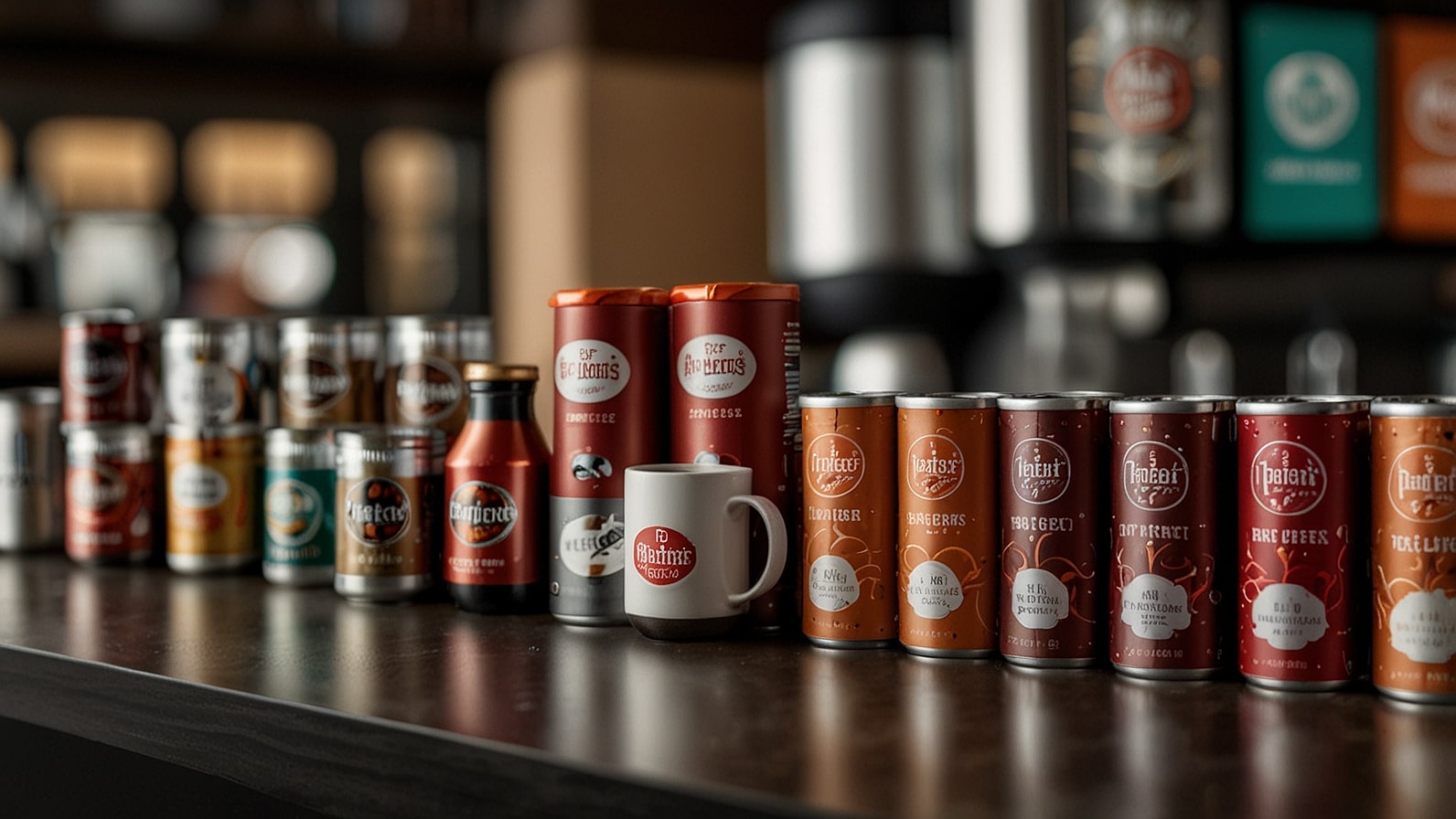Keurig Dr Pepper Inc. is reportedly closing an 18 billion-dollar transaction to purchase JDE Peet’s, the Dutch coffee giant, marking a transformative move that will change the world coffee industry, as announced on August 29, 2025.
This mega merger, which is one of the biggest acquisition of the year in the beverage industry, is geared towards making Keurig Dr Pepper a strong competitor in the global coffee industry estimated to be worth over 100 billion dollars.
The transaction, initially reported by The Wall Street Journal, highlights the company’s ambitious growth policy in response to increasing demand among consumers for high-quality coffee and new brewing technologies.
With the global consumption of coffee products rising at a rapid pace due to the popularity of brewing coffee at home and the luxury cafe ambience, this takeover will take Keurig Dr Pepper to a bigger portion of the retail and commercial coffee markets.
The decision is also timely because competition, supply chain, and changing consumer tastes are challenging in the beverage business, and such strategic consolidations are essential for business growth.
Deal Structure and Strategic Fit
Although final terms are still being discussed, it is being reported that Keurig Dr Pepper will acquire JDE Peet in a cash-and-stock deal estimated to be worth approximately $ 18 billion. Assuming regulatory approvals and shareholder consent, the agreement is supposed to be closed by early 2026.
The head office of JDE Peet in Amsterdam is a multinational corporation that deals with coffee and tea, and its portfolio includes such household brands as Jacobs, Douwe Egberts, and Peet. In 2024, the company recorded EUR 8.2 billion in revenue and has a strong presence in Europe, North America, and emerging markets.
JDE Peet is a complementary fit to the Keurig Dr Pepper, the single-serve coffee machines and brands such as Green Mountain and Dr Pepper. The takeover boosts the coffee brand of Keurig with the addition of the high end roasting and grinding coffee brands and geographic coverage extended to Europe and Asia.
The acquisition also gives Keurig a stronger standing in the rapidly expanding ready-to-drink coffee sector, in which JDE Peet has been making significant market entry with its existing products, such as iced coffee drinks.
Driving Growth in a Competitive Market
By 2030, the world market in the coffee industry will experience a 5.2% CAGR as demand expands towards speciality coffee, sustainable sourcing and convenient at-home brewing solutions.
Single-serve Coffee Keurig brewing systems have led the way in home coffee consumption with their pioneering technology. Nevertheless, Keurig has faced competition from other competitors, such as Nestlé (Nespresso) and Starbucks, and has been compelled to pursue strategic acquisitions to ensure its continued leadership.
The strength of JDE Peet’s supply and sound knowledge of sustainability in coffee sourcing is, in addition to the fact that JDE Peet’s is aligned with the already established Keurig Dr Pepper efforts to adhere to environmental and social responsibility.
The existing connections that JDE has established with coffee growers in countries such as Brazil and Ethiopia may assist Keurig in tackling the problem of fluctuating raw material prices, which remain a constant challenge in the climate change and political conflict environment. Additionally, JDE’s robust cafe and foodservice channels can be leveraged to supplement Keurig’s retail lead and generate cross-channel synergies.
Market and Economic Context
The stock of Coca-Cola increased by 3.2 per cent in the after-hours trade on August 29, 2025, as investors optimised the potential of the deal to stimulate future growth. The news is announced in a favourable economic environment, as the stable inflation indicator provided by the U.S.
The Federal Reserve in July indicated the possibility of reducing interest rates. This high-value acquisition would be easier to finance as a result of lower borrowing costs and increased consumer spending on high-end beverages.
Nevertheless, other headwinds affecting the beverage industry include increasing logistics costs and tariffs that impact global supply chains. The recent lapse of the U.S. de minimis exemption on low-value imports would raise the price of coffee-related equipment, potentially impacting margins.
The executive of Keurig Dr Pepper has highlighted that the acquisition of JDE Peet will increase the supply chain resilience, and the European manufacturing capacity of JDE will alleviate any tariff-related problems.
Strategic Implications and Industry Impact
In the case of Keurig Dr Pepper, this move to acquire JDE Peet is a radical step towards becoming a global leader in coffee. The merger will result in a diversified mix of single-serve pods, roasted coffee, and ready-to-drink beverages, positioning the merged company to compete with industry giants such as Nestlé and J.M. Smucker.
Analysts estimate that the deal will increase the business’s annual revenue by 30 per cent, bringing Keurig closer to $ 20 billion by 2027. In the case of JDE Peet, the acquisition will provide it with access to the sophisticated technology in the brewing and distribution network in North America, which may accelerate its expansion in the U.S. market.
The transaction also represents the broader consolidation trend in the food and beverage industry, where firms are consolidating to achieve economies of scale and overcome inflationary pressures.
Looking Ahead: Opportunities and Challenges
Since Keurig Dr Pepper is a merger between JDE Peet and other companies, the emphasis will be on portfolio harmonisation and optimisation of the operations to achieve cost scale.
The company will also have to go through the cultural differences between its U.S.-based operations and the European base of JDE so that employees and customers can seamlessly be transferred.
The success will depend on the use of premium JDE brands to engage more high-income consumers, as they are becoming more willing to spend on speciality coffee despite economic uncertainty.
This $ 18 billion acquisition marks a new dawn for Keurig Dr Pepper, which has been eager to expand into the global coffee market. With the changing nature of the beverage industry, the acquisition may pave the way for more mergers that could alter the competitive landscape and revolutionise the consumption of coffee globally.
